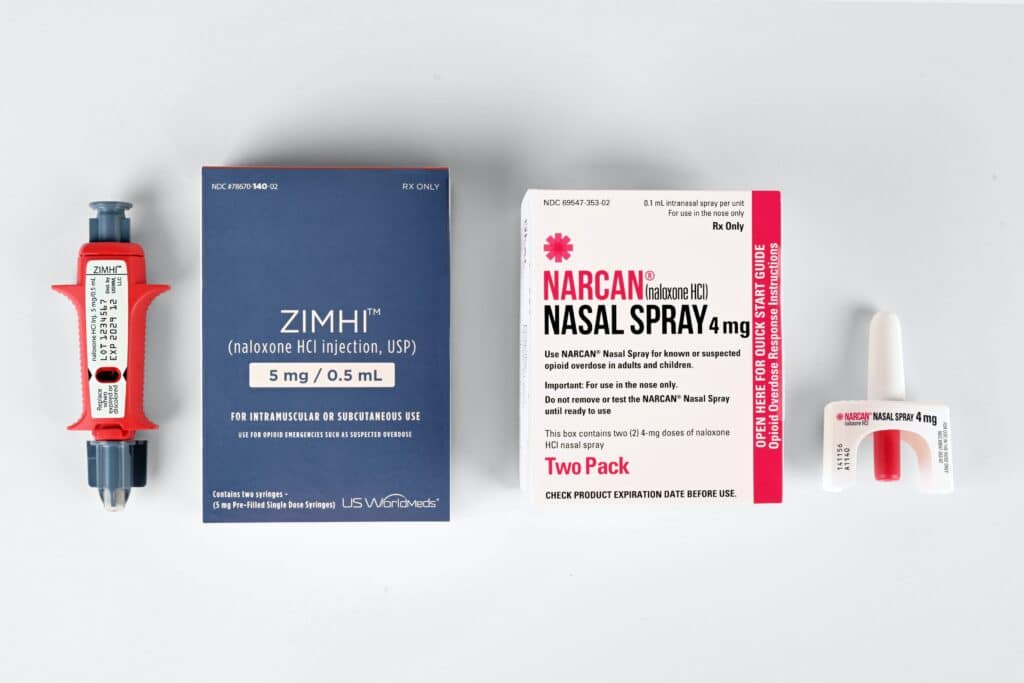When it comes to addiction treatment, it is important to meet people where they are on their journey. Although a person may need help, they may not be in a situation where they can begin treatment. That is why one approach can be particularly helpful for keeping people living with opioid use disorder safe: harm reduction.
While harm reduction gives people practical behaviors they can adopt, it is also a compassionate approach that is deeply rooted in understanding and believes in the worth of every person. Let’s explore its benefits and its impact on individuals and communities.
Understanding the Purpose of Harm Reduction
Harm reduction recognizes that not every person is ready or able to stop using opioids immediately. And while this approach does not condone drug use, it does acknowledge that each person faces unique circumstances and challenges overcoming addiction. That is why it is aimed at reducing the negative consequences of drug use, such as disease, overdose, and death.
One of the most important benefits of harm reduction is that it keeps people breathing, both metaphorically and literally. By understanding the reality that not all people using opioids have access to treatment, harm reduction offers crucial support to those who may not have assistance.
At its core, harm reduction looks beyond the issue of opioid use and recognizes that people who are struggling are more than their drug use – they are people deserving of kindness, empathy, and support.

Acknowledging Harm Reduction Principles
At the heart of harm reduction is the idea that people have autonomy. Healthcare providers are responsible for respecting an individual’s choices, even when they involve the risk of continued opioid use. It helps providers establish trust, build strong relationships, and create a supportive environment for positive change for people seeking help.
Human rights are also an important part of harm reduction. People who are using psychoactive substances have the right to fair, non-judgmental, evidence-based treatment, whether the drugs they use are legal or not. By committing to human rights, harm reduction ensures that every person is treated with dignity, respect, and compassion.
Harm reduction not only changes individual lives, but it also reshapes communities. By focusing on autonomy, human rights, and inclusivity, harm reduction challenges stigmas around opioid use. This shift toward empathy and respect is crucial for building healthier communities and improving access to comprehensive care and support.
Evidence-Based Harm Reduction Strategies
The success of harm reduction is not just anecdotal – it is backed by scientific studies. Here are several strategies that have been proven to reduce the negative impact of opioid use:
- Syringe Service Programs (SSPs): Infectious diseases, such as HIV and Hepatitis C, are common issues among people who inject opioids. By offering syringe service programs, which provide safe and sterile injection supplies, infection rates are reduced by 50 percent.
- Medication-Assisted Treatment (MAT): Medications like methadone, buprenorphine, and naltrexone have been shown to reduce opioid use, improve patient retention in care, decrease overdose deaths, and create a better quality of life for patients.
- Overdose Prevention: Naloxone – commonly known as Narcan – is an over-the-counter drug used to reverse the effects of opioid overdoses. When used along with overdose community education, naloxone has been proven to decrease overdose deaths.
- Drug Testing Strips: Deadly drugs like fentanyl and xylazine are often mixed into other substances. This is why testing strips are vital. They not only help people check drugs before using them, but also change personal behavior when drugs test positive for fentanyl.

Addressing the Criticisms
Although harm reduction strategies have been proven to be successful, the approach does face some criticism. Due to the nature of the drugs used in medication-assisted treatment, there are concerns that the medications might be addictive or could be sold illegally. Additionally, syringe service programs, often referred to as needle exchanges – have faced scrutiny. Critics argue they may encourage drug use and increase the presence of used needles in public spaces.
Despite these criticisms, the positive results and significant changes that come from harm reduction strategies are much more substantial. For example, supervised consumption services (SCS) aim to help people use drugs safely and in the presence of others. These services have been implemented in more than 100 sites throughout 11 countries. Since launching on November 30, 2021, New York City’s two overdose prevention centers have intervened on more than 1,300 overdoses and collected more than two million units of hazardous waste.
Far from encouraging drug use, harm reduction offers a way for people to make positive change. It recognizes that every person has a unique journey with substance use. By using methods supported by scientific evidence to make drug use safer, we can reduce judgement and stigma. This approach improves the health and well-being of both individuals and communities.

Starting the Journey at BAART Programs
Our team members at BAART Programs support the use of harm reduction strategies. We offer the compassion and understanding necessary to meet each individual where they are on their path to treatment and recovery. Our personalized approach to care is based in scientific evidence, and our supportive environment ensures that every person’s story is met with empathy and respect.
If you or a loved one is living with opioid use, we are here to help you find recovery, supporting and guiding you every step of the way. Contact BAART Programs today or find a treatment center near you.



